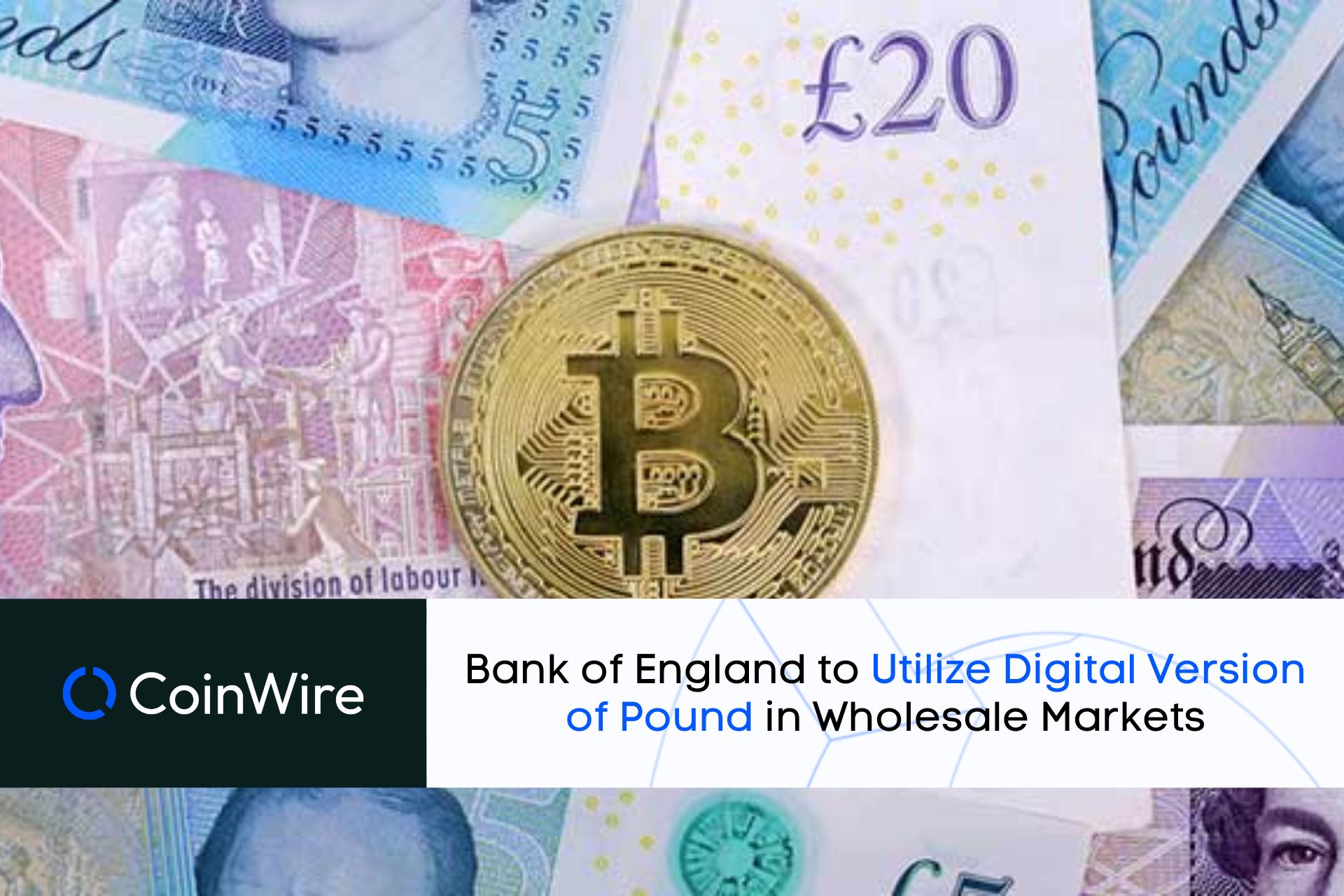
Digital Version of Pound Accepted by Bank of England
The deputy governor of the renowned Bank of England, Governor Jon Cunliffe, asserted that policymakers are currently preparing to use the digital version of pound in wholesale markets. This assertion by the deputy governor is a blatant sign that the UK is getting closer to accepting the concept.
The deputy governor stated that it was a “misunderstanding of the Bank’s position” to believe that policymakers were only considering central bank digital currencies in a retail setting, according to the transcript of his remarks, which were made public by the BOE in London on Monday.
He continued by saying that they are realizing the potentially revolutionary impact of the atomic settlement, smart contracts, tokenization of financial assets, and other new technologies on wholesale financial markets.
Cunliffe Talked About the Need for Forecasting

Then, Cunliffe said that while looking into the future is an essential component of central banks’ jobs, doing so is a “hazardous enterprise” due to the difficulty of predicting the rate and direction of technological advancement as well as, more importantly, how it will interact with social and economic trends. This makes predicting a crucial part of the Bank of England’s responsibilities.
The UK’s central bank is in charge of making sure that money is “robust and unified” and circulates in the country “seamlessly” and without interruption, both of which are “crucial for financial stability”. The deputy governor continued by describing the 800 private banks, building societies, and credit unions that are currently issuing money.
He also urged users to have more faith in the usefulness and transactional convenience of the money they possess. It’s also important to note that the currency must be the same and that the money must be instantly and valueless convertible into any other form of legal tender. On the other hand, the Bank of England, which is in charge of upholding financial stability and overseeing the UK financial system, must be proactive for two important reasons.
Despite not knowing how new technology, as well as social and economic trends, would pan out, Cunliffe noted that they still need to have planned ahead for how the risks might need to be managed. Cunliffe said that once they get established, keeping up with new technologies can be “very difficult.”
He continued by mentioning his recent interactions with major internet companies and social media platforms. In addition, Cunliffe asserted that the regulatory strategy taken by the central bank, which aims to promote innovation, efficiency, functionality, and resilience, guarantees that businesses seeking to innovate are aware of the risks as they create their goods.


![Tristan Tate Net Worth ([currentyear]): Biography, Businesses & Cars 8 Tristan Tate Net Worth Featured Image](https://coinwire.com/wp-content/uploads/2023/07/tristan-tate-net-worth-featured-image-1024x683.jpeg)


![11 Best Crypto Exchanges in Australia (Updated in [currentmonth] [currentyear]) 11 Best Crypto Exchanges In Australia Featured Image](https://coinwire.com/wp-content/uploads/2023/06/best-crypto-exchanges-in-australia-featured-image-1-1024x683.jpg)
